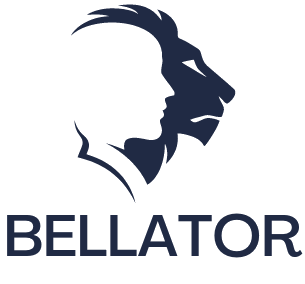Owning a second home or rental property can be lucrative, but unforeseen circumstances, like foreclosure, can disrupt even the best-laid plans. Suppose you’ve experienced foreclosure on such properties. In that case, you might be entitled to surplus funds—the excess money remaining after the foreclosure sale and payment of all outstanding debts, including the mortgage. However, recovering these funds can be complex and daunting, especially for second homes or rental properties.
At Bellator Consulting LLC, we specialize in helping individuals reclaim their rightful surplus funds with professionalism and care. Our expertise has made us leaders in the industry, focusing on protecting our clients’ interests and maximizing their recoveries.
Why Surplus Funds Recovery Matters for Second Homes or Rentals
Surplus funds can represent a significant financial resource for second homes and rental properties. Unlike primary residences, these properties are often viewed as income-generating investments or business assets. Losing access to surplus funds could hinder reinvestment opportunities, disrupt financial stability, or delay recovery from financial setbacks. Recovering these funds is not just about reclaiming money; it’s about reclaiming opportunities.
Common Challenges in Recovering Surplus Funds
1. Legal Complexities
Surplus fund recovery laws vary by state, with strict deadlines for filing claims. Missing these deadlines can result in forfeiture of your funds. Additionally, some states require a court process, adding layers of legal intricacy.
2. Tax Implications
Accepting surplus funds may have tax consequences, depending on how the funds are classified and used. It’s crucial to understand these implications to avoid unexpected liabilities.
3. Fraud Risks
The surplus funds industry is rife with scams. Fraudsters often target individuals entitled to surplus funds, posing as recovery experts or legal representatives. Proper verification and due diligence are essential to protecting your assets.
4. Liens and Claims
Liens or other legal claims, such as unpaid property taxes or contractor’s liens, can complicate the recovery process. These claims may need to be resolved before funds can be distributed.
At Bellator Consulting LLC, we navigate these challenges on your behalf, ensuring your claim is processed accurately and efficiently.
Additional Considerations for Second Homes and Rentals
Ownership Status
Ownership may be held in the name of an individual, a business entity, or even a trust for second homes or rental properties. This can complicate the recovery process compared to a primary residence, typically owned personally. Ownership verification may require additional documentation, primarily if the property is owned through an LLC or partnership.
Liens and Claims
Rental properties often have additional liens, such as contractor liens, property management fees, or unpaid taxes, which can reduce the surplus amount. Second homes may also have home equity loans or lines of credit attached, which can affect how the surplus is distributed.
Legal Perception
Second homes and rental properties are often classified as investments rather than personal residences. This classification can influence how courts and laws prioritize surplus fund claims, potentially placing other creditors higher in line.
Tax Implications
Surplus funds recovered from second homes or rental properties may be treated differently for tax purposes, as they may be considered investment income rather than personal income. Consulting a tax professional is crucial.
Potential for Fraud
Investment properties are more likely to attract fraudulent recovery schemes because they often involve more significant sums than primary residences. Property owners need to be extra cautious.
The Surplus Funds Recovery Process
Step 1: Confirm Eligibility
Eligibility for surplus funds depends on your ownership status during foreclosure. Factors like additional liens or legal claims can affect your entitlement.
Step 2: Understand Foreclosure Sale Details
Analyzing the foreclosure sale, including the sale price, outstanding debts, and related costs, is vital to determining the surplus amount.
Step 3: File a Claim
Filing requires meticulous preparation of documents, including proof of ownership, identification, and compliance with state-specific requirements.
Step 4: Verify Documentation
Correct documentation is critical. Missing or incorrect information can delay or jeopardize your claim.
Step 5: Receive Funds
Once approved, funds are released. While timelines vary by state, the process can take weeks or months.
With Bellator Consulting LLC, you can trust us to manage these steps seamlessly, allowing you to focus on rebuilding and planning your next move.
Frequently Asked Questions
Can I Recover Funds If I’m No Longer Living on the Property?
Yes. Surplus funds belong to the property owner at the time of foreclosure, regardless of whether it’s a primary residence, second home, or rental property.
What Happens If There Are Liens on the Property?
Liens may reduce the surplus amount you’re eligible to receive. For example, unpaid property taxes or contractor’s liens may take priority. We help you navigate these complexities to maximize your recovery.
How Long Do I Have to File a Claim?
Time limits vary by state, ranging from 6 months to several years. Missing these deadlines means forfeiting your funds.
Why Choose Bellator Consulting LLC?
Expertise in Complex Cases
We focus on surplus fund recovery for second homes and rental properties, often involving unique legal challenges.
Personalized Service
Each client receives dedicated attention, ensuring tailored solutions for their specific needs.
Transparency and Trust
We keep you informed every step of the way so you’re never left in the dark.
Proven Track Record
Our team has successfully recovered millions of dollars in surplus funds for clients nationwide.
Insider Tips for Successful Surplus Funds Recovery
- Act Quickly: Start the recovery process as soon as possible to avoid missing critical deadlines.
- Keep Property Records: Maintain thorough documentation, such as mortgage statements, property deeds, and foreclosure notices.
- Work with professionals: DIY recovery efforts can lead to errors and delays. Partnering with experts ensures accuracy and efficiency.
If you’ve experienced a foreclosure on a second home or rental property, don’t let your surplus funds go unclaimed. Let Bellator Consulting LLC handle the complexities for you. Contact us today for a free consultation and take the first step toward reclaiming what’s rightfully yours.


Leave a Reply